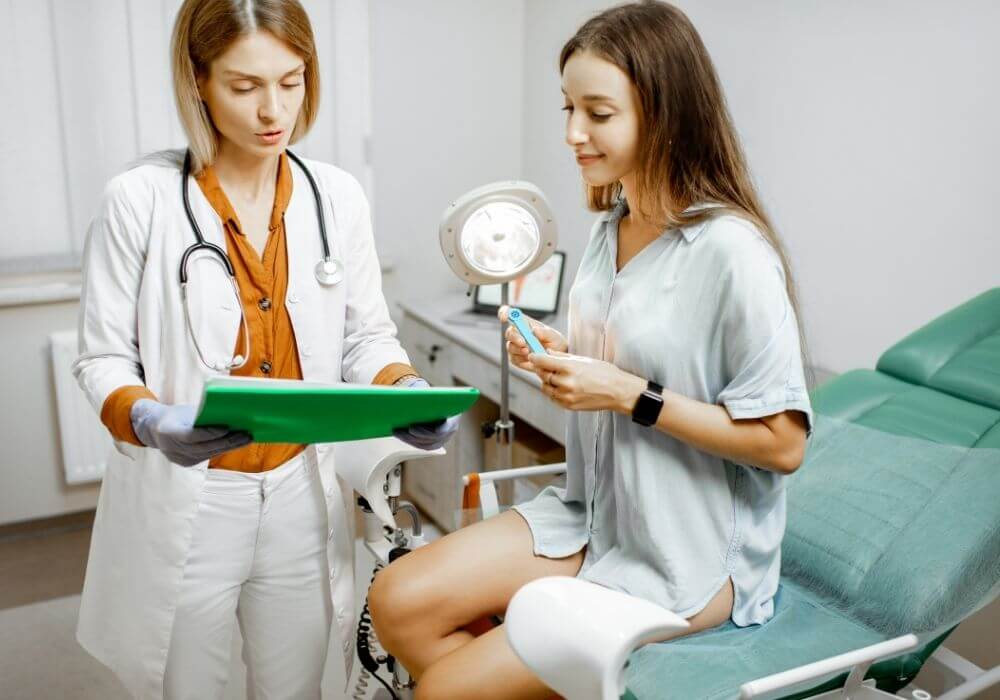Top 5 Women’s Health Myths Debunked by a Gynecologist

There are a lot of misconceptions surrounding gynecology and obstetrics and with so much information, it can be difficult to determine the truth to take the best possible care of yourself. We have many resources available on our website that explain processes and lay out exactly what you can expect during your visits. Here are some of the myths we most often hear about OBGYNs and the facts that dispel them.
OBGYN Myth #1: It is not necessary to go to the gynecologist unless you are pregnant or have a problem
We hear this a lot, and it cannot be further from the truth. A gynecologist is not just for women who are pregnant or seeking a solution for a gynecologic concern. Going to the gynecologist should be something all women do routinely throughout their lives. For starters, you should begin visiting the gynecologist between the ages of 13 and 15 to begin annual screenings and preventive healthcare.
Gynecologists offer many resources including birth control, cancer screenings, and family planning options. Plus, your annual gynecology appointment is a great time to discuss any concerns you may have about your body. When and how often you should see a gynecologist depends on many factors including your health concerns and medical history. If you have not already, you should establish a relationship with an OBGYN and see her/him once a year.
OBGYN Myth #2: If you are on your period, you have to cancel your gynecologist appointment
Whether or not you should cancel your appointment if you’re on your period depends on a few factors: where you are in your cycle, how heavy your bleeding is, why you’re visiting your doctor, and your comfort level. For example, if your flow is light and you are going in for a pap smear, your doctor should still be able to proceed as normal. Before canceling your appointment, call your doctor’s office to discuss the best way to proceed.
OBGYN Myth #3: You should be getting a pap smear every year
While all individuals with a cervix should start getting pap smears at the age of 21, per the American Cancer Society’s recommendation, the frequency of which you will need to get them varies from person to person. How often you get a pap smear can vary depending on your medical history, health concerns, age, and lifestyle.
As a baseline, it is recommended that individuals get a pap smear every three years if they’re between the ages of 21 and 29. Those 30 and above can consider getting a pap smear and HPV test every five years if they’ve had normal pap smears in the past.
Of course, you should consult with your healthcare provider and follow their personalized recommendations as to how often you should get one.
OBGYN Myth #4: Pap smears test for STIs
Many individuals are under the impression that a pap smear also screens for sexually transmitted infections but that is not always the case. Some medical providers will automatically test women for infections but not all will. If you’d like to get tested, or have noticed a change in your odor, discharge, or are experiencing pelvic discomfort, you should ask your gynecologist to test for STIs.
As a baseline, the CDC recommends that everyone who is sexually active should get tested for sexually transmitted infections. Make sure to talk to your gynecologist about which tests are right for your lifestyle.
OBGYN Myth #5: If you get the Gardasil shot or a similar vaccine against HPV, you don’t need a pap smear
The HPV vaccine helps to prevent certain strains of the virus but it does not protect against all strains of the virus and therefore cannot prevent all cases of cervical cancer. It is possible to get HPV despite getting the vaccination. So while getting them is important, vaccines are not always 100% effective.
It is crucial to continue getting screened for cervical cancer even if you’ve been vaccinated.